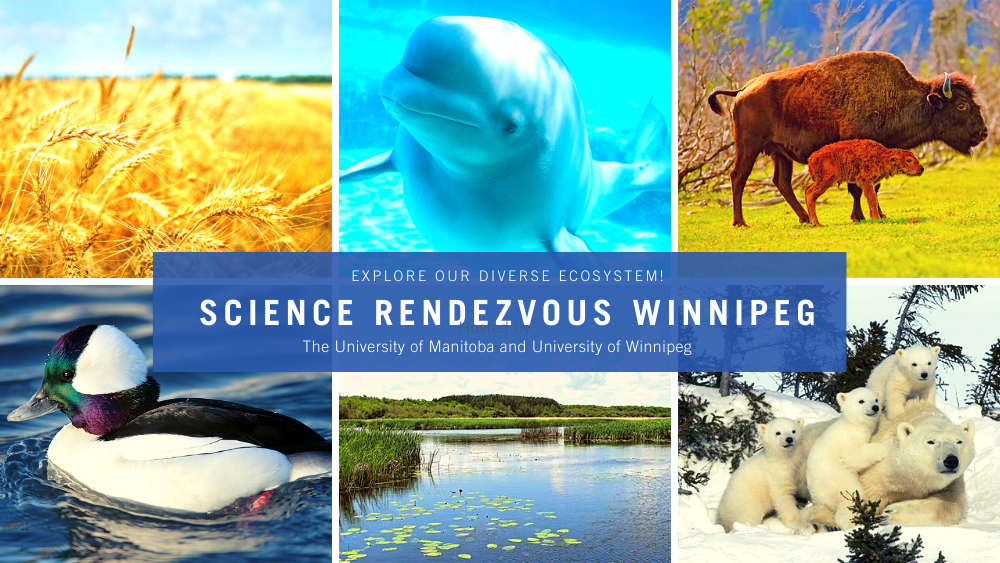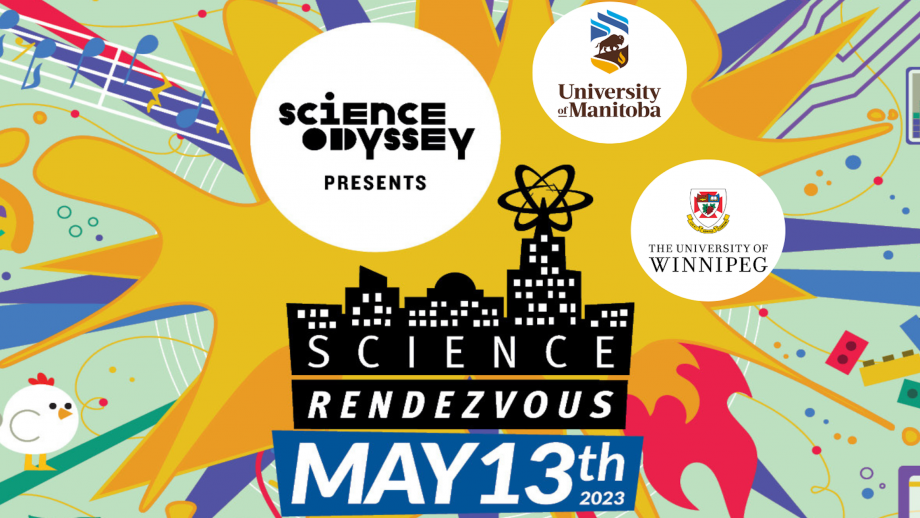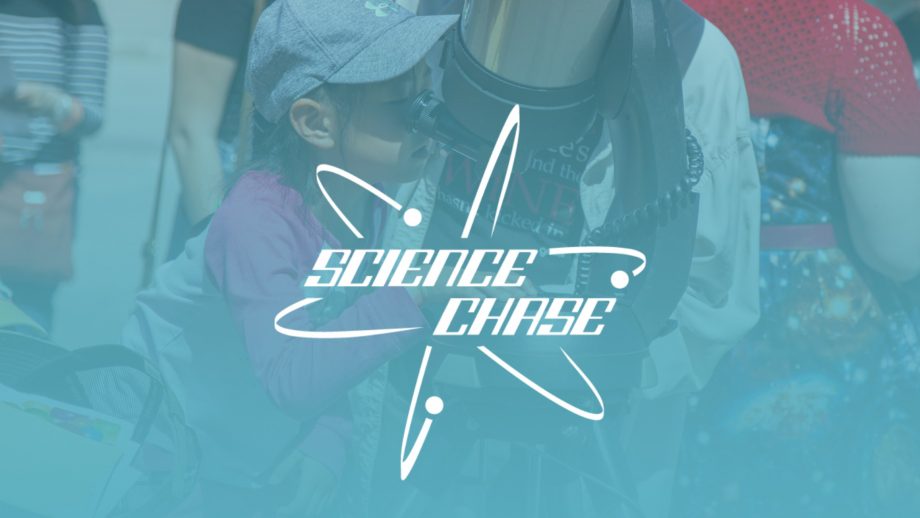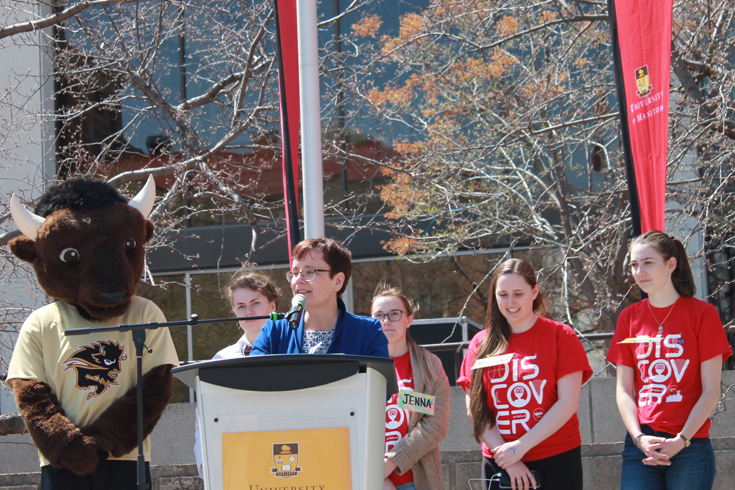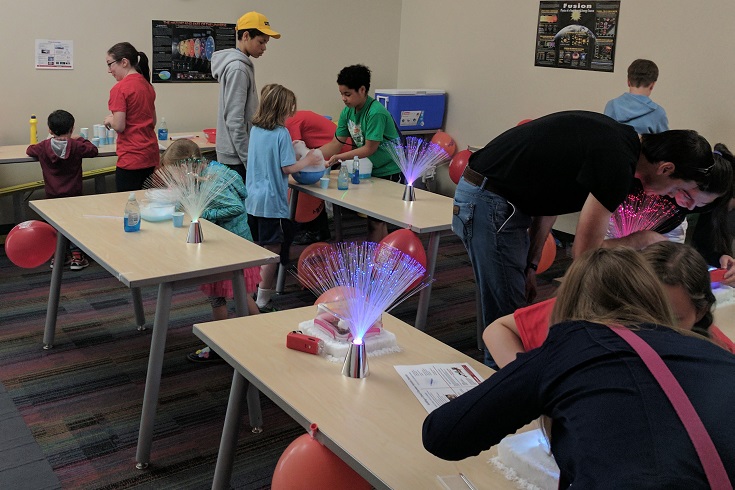Science Rendezvous is returning virtually this year and a team of University of Winnipeg students has been working hard behind the scenes to prepare for the event.
Allison Afable, Harshvi Patel, Deirdre Rooney, and Kylie Senangelo have been working as a group remotely to plan activities with leadership from Associate Dean of Science Dr. Tabitha Wood and Master of Science in Bioscience, Technology, and Public Policy student Monalisa Abas.
While Patel and Rooney have taken part in Science Rendezvous activities in the past, this is a first-time experience for Afable, Senangelo, and Abas. All say that the experience has inspired them to want to be more involved in science outreach in the future.
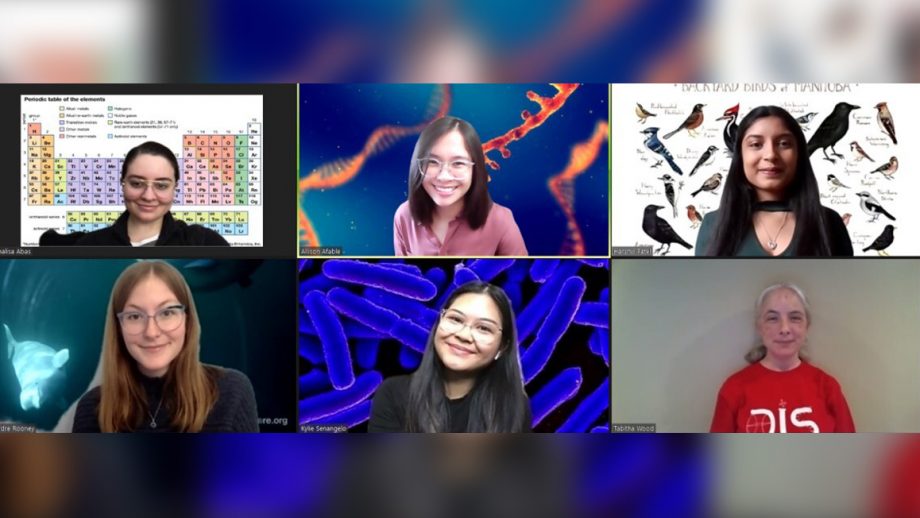
Allison Afable, Harshvi Patel, Deirdre Rooney, Kylie Senangelo, Monalisa Abas, and Associate Dean of Science Dr. Tabitha Wood have been meeting regularly on Zoom to plan fun challenges for this year’s Science Rendezvous.
“The thing that I enjoy most about the Manitoba Citizen Science project is exploring the various ways in which citizens can take part in science research, regardless of their knowledge or background,” said Patel.
This year’s focus has been on promoting citizen science activities through a series of virtual games and challenges.
Citizen Science projects showcase Manitoba projects
Each member of the group is organizing online activities as part of a series of challenges that participants across Canada will complete, filling in a passport as they travel from activity to activity.
“This is a great way to unify people and give participants a view into the types of projects taking place in provinces other than their own,” said Rooney. “Science is in our homes, our cities, and our day-to-day activities. Events like this show people how they can get involved if something sparks their interest.”
Rooney’s activity introduces participants to Beluga Bits, a Citizen Science project that allows interested individuals to actively participate in the classification and identification of belugas.
“I chose it because I was familiar with their work and since it is such an interesting and interactive project,” she said.
Afable is leading an eteRNA game, where players solve puzzles related to the folding of RNA molecules. She says it’s both entertaining and educational.
“Since random combinations of nucleotides don’t necessarily allow you to proceed to the next level, it makes you think,” she said. “I also like that the game gives you information about what RNA is at the end of each level.”
She hopes that the activity will inspire more non-scientists to get involved.
“I have several friends and family members who are intimidated by anything that involves science,” she said. “Events like this show them that science is not only for individuals who are in the field but anyone who is interested.”
Patel’s activity introduces participants to the Christmas Bird Count, a census of early-winter bird populations that helps conservation biologists and naturalists assess the population trends and distribution of birds in Manitoba.
She hopes that the activity will spark interest in STEM (Science, Technology, Engineering, and Math).
“Science outreach is incredibly valuable,” said Patel. “It encourages children and youth to explore opportunities, and helps participants gain an appreciation for the profession and what it has to offer to the community.”
Senangelo is leading a Colony B game, where participants identify clusters of bacteria to contribute to research on the human microbiome.
“The game helps us understand how each person has a different digestive system bacteria depending on their diet, lifestyle, and other things,” she said. “This is important because it shows people how science affects them directly. I believe that making people aware of this can help continue and improve the support given to research.”
In addition to the mentorship they are receiving from Wood and Abas, the undergrad students have received funding to support their projects.
Rooney’s work is supported by UWinnipeg’s Experiential Learning Fund, Patel is supported by UWinnipeg’s Work Study Program, and Afable and Senangelo received Canada Summer Jobs Grants, allowing them to gain work experience through science outreach activities.
“It is a great opportunity to gain experience in the field we study in,” said Senangelo. “I think it helps a lot with transitioning into the labour force, which can be quite overwhelming.”
Science Rendezvous Winnipeg is an annual free science and engineering festival hosted by the University of Winnipeg and the University of Manitoba. It is part of Science Rendezvous, Canada’s largest public science outreach event. In 2019, Science Rendezvous Winnipeg featured live shows and over 60 hands-on science activities. It attracted over 7,000 participants and included 800 university student volunteers.

